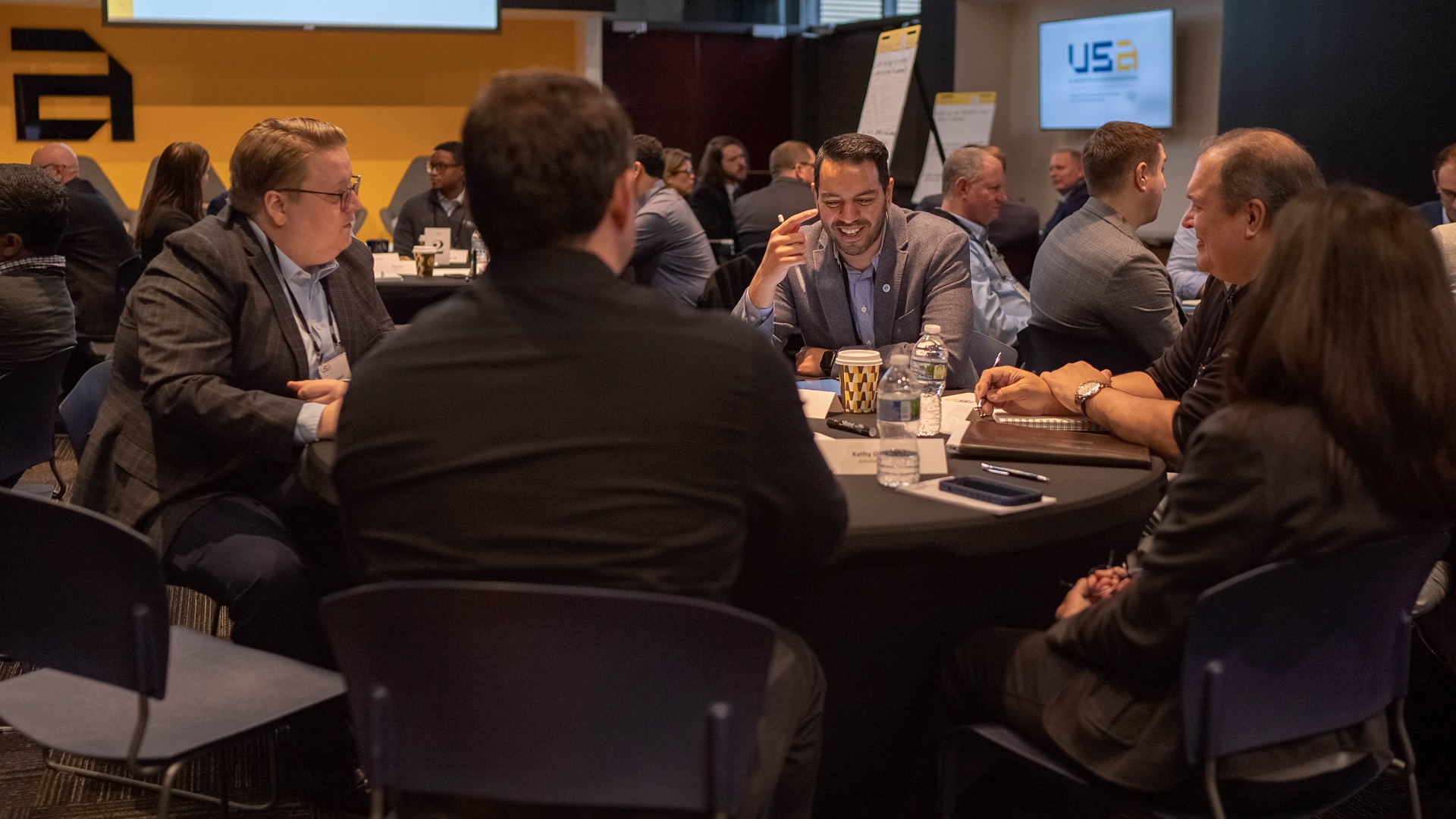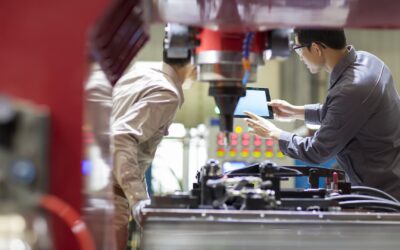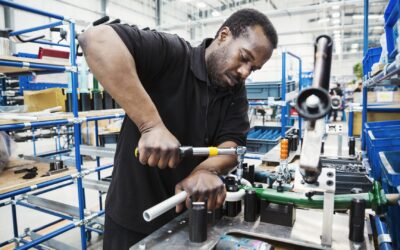The U.S. manufacturing workforce of 13 million exists in a transformative time in global industry. Digital technologies are revolutionizing the advanced manufacturing work process. Those who adopt the necessary learning journey for their employees will see incredible gains in efficiency, production and complexity. The industry’s greatest asset, its human element, will need to evolve alongside its tech-centric counterparts.
On Dec. 15, The US Center for Advanced Manufacturing hosted a roundtable discussion on upskilling and reskilling the manufacturing workforce. The event was attended by over 40 industry professionals representing major OEMs and their supply chains across industries and geography.
Utilizing breakout sessions and key presentations, the findings of this event will shape US Centre workforce project goals moving into 2023.
Here are five key takeaways:
1. The Human Centric Supply Chain
MSU Kesseler Family Faculty Fellow in Supply Chain Management Sriram Narayanan opened up the event with a presentation on “Abilities First, Steps to Create The Human Centric Supply Chain.” According to Narayanan, the concept of a human-centric supply chain is not new: Henry Ford once tallied up factory positions based on ability, finding that 4,034 of 7,882 jobs did not require full physical capacity to perform. Moving to the 21st century, Narayanan argued that teaching intangible abilities like empathy toward fellow workers and the perception of business-societal relationships will play major roles in the manufacturing workforce and beyond.
2. A Transformative Journey
Diving into the breakout sessions, attendees agreed successful upskilling and reskilling programs require incorporating the voice of the workforce, providing space for them to express and experiment creatively to drive innovation. Also, since the learning process will be a lifelong commitment, workers should have access to environments conducive to production, education and comfort.
3. Driving Holistic Change
Bolstering the workforce requires an internal and external narrative change surrounding education and employment. Fresh college graduates are not the sole employee resource for manufacturers to recruit. Community-led upskilling groups like Apple Developer Academy are creating capable workers of all ages and backgrounds. Fostering these non-traditional education resources will be key in building a tech-savvy workforce. Changing this narrative and supporting non-traditional education resources will require cross-company collaboration.
4. Partnerships
Private-public partnerships are needed to upskill the workforce. A greater emphasis on manufacturing as a viable career for K-12 children is vital to meet future demand. Partnerships focusing on apprenticeship and other programming will also play a role. The academic, governmental and business realm will all need to work in concert for these efforts to stick.
5. Inclusion Efforts
To close the event, Flex Vice President of Quality and Operational Excellence Eduardo Toledo gave a presentation on inclusion efforts of people with “DiversAbilities.” Flex achieves inclusion efforts through the use of an Employee Resource Group focusing on workforce culture and workforce training. A Flex site in Milan demonstrates this effort with internships and job opportunities focused on people on the autism-spectrum, integration of diversity into hiring strategy and neurodiversity trainings, workshops, labs and webinars for all site employees.
For more information on the US Center for Advanced Manufacturing events and initiatives, see here.
Sign up today for a free Essential Membership to Automation Alley to keep your finger on the pulse of digital transformation in Michigan and beyond.
Dennis Burck is Automation Alley's Digital Content Editor, responsible for the organization's content strategy and development. Dennis is a media-savvy professional who builds relationships with Automation Alley members and partners to find and create the best and most relevant content to increase Industry 4.0 awareness and drive traffic to Automation Alley's Industry 4.0 knowledge center.




